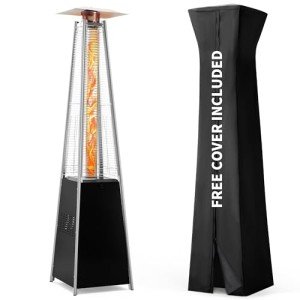What Makes The Fireplaces And Stoves So Effective? For COVID-19
The Comprehensive Guide to Fireplaces and Stoves
Fireplaces and stoves have actually been essential to human civilization for centuries, serving as a source of warmth, light, and comfort. These appliances can be found in numerous kinds and have actually evolved throughout the years, dealing with diverse choices and technological advancements. This short article supplies an informative summary of fireplaces and stoves, highlighting their types, benefits, upkeep suggestions, and installation factors to consider.
Kinds of Fireplaces
The world of fireplaces is rich and varied. Here are the most typical types:
Wood-Burning Fireplaces:
- Traditional and charming.
- Needs skilled wood and regular maintenance.
- Produces a pleasant aroma and crackling noise.
Gas Fireplaces:
- Offer convenience and ease of usage.
- Offered in vented and vent-free options.
- More efficient and cleaner than wood-burning alternatives.
Electric Fireplaces:
- Provide atmosphere without the requirement for a chimney.
- Easy to use with push-button control options.
- Can be utilized as a supplemental heat source.
Pellet Stoves:
- Use compressed wood pellets as fuel.
- Extremely efficient and eco-friendly.
- Typically geared up with thermostats for temperature control.
Ethanol Fireplaces:
- Utilize bioethanol fuel, making them portable.
- Do not require venting, which enables for flexible placement.
- Produce a practical flame with very little smoke.
Outdoor Fireplaces:
- Designed for outdoor settings; can be wood or gas-burning.
- Great for entertaining and enhancing yard aesthetic appeals.
- Frequently built from stone, brick, or metal.
Advantages of Fireplaces and Stoves
Integrating a fireplace or stove into a home offers many benefits:
- Aesthetic Appeal: Fireplaces serve as striking centerpieces in any room, including warmth and character to home design.
- Increased Property Value: Homes with functional fireplaces tend to have higher resale worths.
- Energy Efficiency: Modern fireplaces and stoves are developed to be more energy-efficient, which can cause minimized heating expenses.
- Backup Heating Source: In case of power blackouts, wood-burning and gas fireplaces can act as vital heating sources.
- Versatile Heating Solutions: Different types of fireplaces accommodate different heating requirements and way of lives, from relaxing ambiance to efficient heating.
Kind of Fireplace/Stove
Fuel Source
Efficiency Rating
Upkeep Level
Wood-Burning
Wood
Moderate
High
Gas
Natural gas/LP
High
Low
Electric
Electrical energy
High
Extremely Low
Pellet
Wood pellets
High
Moderate
Ethanol
Bioethanol
Moderate
Low
Outdoor
Wood or gas
Moderate
Differs
Maintenance Tips
Proper upkeep extends the life of fireplaces and stoves, guaranteeing security and efficiency. Here are some necessary suggestions:
Regular Cleaning:
- Wood-burning fireplaces should be cleaned after a complete season of use to eliminate soot and creosote.
- Gas fireplaces require routine assessment of the burner and vents.
Regular Inspections:
- Have chimney sweeps perform annual evaluations to identify blockages or structural damage.
- Examine the seals and gaskets on gas units to prevent leakages.
Fire Safety:
- Install smoke and carbon monoxide detectors in homes with fireplaces or stoves.
- Keep a fire extinguisher near the fireplace or stove for emergencies.
Use Quality Fuel:
- For wood-burning units, always utilize seasoned wood; avoid treated or painted wood.
- When using pellets, ensure they are saved effectively to avoid moisture absorption.
Manage Airflow:
- Keep vents and ducts clear to promote effective ventilation and airflow.
- Think about utilizing glass doors or screens to minimize particles and ash in the home.
Setup Considerations
Installing a fireplace or stove requires cautious consideration of a number of aspects:
Location:
- Choose a place that permits proper clearance and ventilation.
- Think about the layout of your home and the convenience of natural heat distribution.
Building Codes and Permits:
- Check local policies regarding setups and required authorizations.
- Engage an expert to make sure compliance with security requirements.
Fuel Type:
- Evaluate your fuel choices based upon accessibility, expense, and environmental effect.
- If selecting gas, ensure existing gas lines can accommodate the brand-new device.
Ventilation:
- Proper venting is crucial for safety and performance, specifically for gas and wood-burning systems.
- Speak with an expert to figure out the very best venting option.
Aesthetic Consideration:
- Select a design that complements your home's interior.
- Think about mantels, surround materials, and colors that match your design.
FAQs
What is the best kind of fireplace for heating?
Gas fireplaces are usually more efficient for heating, while wood-burning fireplaces supply more ambient heat.
How frequently should I clean my fireplace?
Wood-burning fireplaces should be cleaned at least once a year, while gas fireplaces require less frequent attention depending upon usage.
Can I set up a fireplace myself?
While some homeowners may try DIY installation, it is advised to employ an expert to guarantee safety and compliance with building regulations.
Are electric fireplaces efficient?
Yes, electric fireplaces are really efficient and can serve as effective additional heating sources, especially in smaller sized areas.
What is the life expectancy of a fireplace?
The lifespan of a fireplace varies depending on the product, type, and maintenance; however, a properly maintained wood-burning fireplace can last over 30 years.
Fireplaces and stoves stay ageless functions in homes, offering warmth and ambiance. Comprehending the various types, advantages, and maintenance requirements can assist property owners make notified decisions about setup and care. With Online Fireplaces USA and routine maintenance, these home appliances can enhance both the comfort and value of a home for many years to come.
